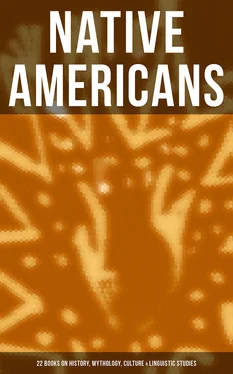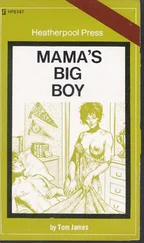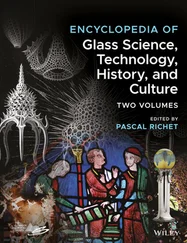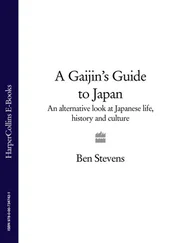Niutang, hoop used in whaling.
Nudlung, the posteriors.
Nudnirn, the point.
Nugumiut, the inhabitants of the point.
Nurata.
Nuratamiut, the inhabitants of Nurata.
Nuvujalung, the large cape or point.
Nuvujen, the points.
Nuvukdjuaq, the great point.
Nuvukdjuaraqdjung, the little Nuvukdjuaq.
Nuvuktirpāng´, the greatest point.
Nuvuktualung, the only great point.
Nuvung, the point.
O.
Okan, the codfish (plural).
Okavit.
Operdniving, place where one lives in spring.
Oqo, the weather side.
Oqomiut, the inhabitants of Oqo.
Owutta.
P.
Padli, with the mouth of a river.
Padliaq, the little mouth of the river.(?)
Padlimiut, the inhabitants of Padli.
Padloping; from padlorpoq (lying on the face?).
Pamiujang, similar to a tail.
Pangnirtung, with many bucks.
Pikiulaq, Uria grylle .
Piling, with many things (i.e., game).
Pilingmiut, the inhabitants of Piling.
Pingitkalik.
Pitiktaujang.
Pujetung, with plenty of blubber.
Putukin.
Q.
Qaggilortung; from qaggi , singing house.
Qairoliktung, with plenty of seals ( Phoca grœnlandica ).
Qamusiojodlang.
Qariaq.
Qarmang, walls.
Qarmaqdjuin, the large walls.
Qarussuit, the caves.
Qasigidjen, Callocephali .
Qaumauang; from qauq , daylight.
Qaumauangmiut, the inhabitants of Qaumauang.
Qaχodlualung, the large fulmar.
Qaχodluin, the fulmars.
Qeqertakadlinang; from qeqertaq , island.
Qeqertalukdjuaq, the large island.
Qeqertaq, the island.
Qeqertaujang, similar to an island.
Qeqertelung, the large island.
Qeqerten, the islands.
Qeqertome itoq tudlirn, next to the island.
Qeqertuqdjuaq, the large island.
Qerniqdjuaq, the great black place.
Qidnelik.
Qimissung, the snow drift.
Qimuqsuq; from qimuqpoq , he draws the sledge.
Qingaseareang.
Qingua, its head.
Qinguamiut, the inhabitants of Qingua.
Qivitung, the hermit.
Qognung, the narrow place.
Qogulortung (Qaggilortung?).
Qordluving, where the water runs in a solid stream.
Quaiirnang.
Qudjitariaq.
S.
Sagdlirmiut, the inhabitants of Sagdlirn.
Sagdlirn, the island nearest the sea.
Sagdlua, its Sagdlirn.
Sakiaqdjung, the little rib.
Sarbaq ( sarvaq ), the rapids.
Sarbaqdjukulu, the small rapids.
Sarbaqdualung, the large rapids.
Sarbausirn, the smaller rapids.
Sarbuqdjuaq, the large rapids.
Saumia, its left side.
Saumingmiut, the inhabitants of Saumia.
Saunirtung, with many bones.
Saunirtuqdjuaq, the great one with many bones.
Sednirun, the yard.
Siegtung, the scattered ones.
Sikosuilaq, the coast without ice.
Sikosuilarmiut, the inhabitants of Sikosuilaq.
Sini, the edge.
Sinimiut, the inhabitants of Sini.
Sioreling, with sand.
Sirmiling, with a glacier.
Sulung, the valley through which the wind blows howling.
Surosirn, the boy.
T.
Talirpia, its right side.
Talirpingmiut, the inhabitants of Talirpia.
Tappitariaq, the pass crossing two isthmuses.
Tappitaridjen, the passes crossing two isthmuses.
Taquirbing.
Tarionitjoq, the salt water basin.
Tarrionitung, the salt water basin.
Taχolidjuin.
Tessiujang, similar to a pond.
Tikeraqdjuaq, the great point.
Tikeraqdjuausirn, the smaller great point.
Tikeraqdjung, the small point.
Tikeraqdjuq, the small point.
Tininiqdjuaq, the large beach.
Tiniqdjuaurbing, the great place with a high tide.
Tiniqdjuarbiusirn, the smaller great place with a high tide.
Tornait, Spirits.
Touaqdjuaq.
Tuarpuqdjuaq.
Tudjan.
Tudjaqdjuaq.
Tudjaqdjuaralung.
Tudjaraaqdjung.
Tukia, its farthest corner.
Tulukan, the ravens.
Tuniqten, those lying behind it.
Tunukutang.
Tununirmiut, the inhabitants of Tununirn.
Tununirn, the country lying back of something.
Tununirusirmiut, the inhabitants of Tununirusirn.
Tununirusirn, the smaller Tununirn.
Tunussung, the nape.
Tupirbikdjuin, the tent sites.
U.
Udlimauliteling, with a hatchet.
Ugjuktung, with many ground seals.
Ugjulik, with ground seals.
Ugjulirmiut, the inhabitants of Ugjulik (the ground seal country).
Uglariaq.
Uglirn, walrus island.
Uglit, the walrus islands.
Uibarun, the cape.
Ujaraqdjuin, the large stones.
Ujaradjiraaitjung; from ujaraq , stone.
Ukadliq, the hare.
Ukiadliving, the place where one lives in the fall.
Ukiukdjuaq, the great winter.
Ukusiksalik, the place with pot stone.
Ukusiksalirmiut, inhabitant of Ukusiksalik.
Umanaq, the heart-like island.
Umanaqtuaq, the great heart-like island.
Umingman Nuna, the land of the musk ox.
Ungava.
Ungavamiut.
Ussualung, the large penis.
Utiqimitung.
Table of Contents
After the preceding paper was in type some additional information was received from whalers who returned from Cumberland Sound in the autumn of 1887. In the following notes I give the substance of these reports:
Page 467. Since 1883 the whalers have been more successful, and consequently more ships visit the sound. In the present winter—1887-’88—one American and two Scottish whaling stations are in operation in Cumberland Sound; a new station was established in Nugumiut two years ago, and the Scottish steamers which used to fish in Baffin Bay and the northern parts of Davis Strait are beginning to visit Cumberland Sound and Hudson Strait. The whaling in Baffin Bay shows a sudden falling off and it seems that the number of ships will be greatly reduced. This cannot be without influence upon the Eskimo, who will probably begin again to flock to Cumberland Sound and Nugumiut.
Page 538. In 1884 and 1885 a lively intercourse existed between Padli and Cumberland Sound, and in the spring of the latter year the dog’s disease broke out for the first time on the coast of Davis Strait, and spread, so far as is known, to the northern part of Home Bay.
Page 574. A peculiar game is sometimes played on the ice in spring. The men stand in a circle on the ice, and one of them walks, the toes turned inward, in a devious track. It is said that only a few are able to do this in the right way. Then the rest of the men have to follow him in exactly the same track.
One of their gymnastic exercises requires considerable knack and strength. A pole is tied with one end to a stone or to a piece of wood that is firmly secured in the snow. A man then lies down on his back, embracing the pole, his feet turned toward the place where the pole is tied to the rock. Then he must rise without bending his body.
In another of their gymnastic exercises they lie down on their stomachs, the arms bent so that the hands lie close together on the breast, palms turned downward. Then they have to jump forward without bending their body, using only their toes and hands. Some are said to be able to jump several feet in this manner.
Page 582. In the Report of the Hudson Bay Expedition of 1886, p. 16, Lieut. A. Gordon remarks that the same custom is reported from Port Burwell, near Cape Chidleigh, Labrador. He says: “There lived between the Cape and Aulatsivik a good Eskimo hunter whose native name is not given, but who was christened by our station men ’Old Wicked.’ He was a passionate man and was continually threatening to do some bodily harm to the other more peaceably inclined natives. ***His arrogance and petty annoyances to the other natives became at length unbearable. It appears that these unfortunates held a meeting and decided that Old Wicked was a public nuisance which must be abated, and they therefore decreed that he should be shot, and shot he was accordingly one afternoon when he was busily engaged in repairing the ravages which a storm had made in his ‘igdlu’ or snow house. The executioner shot him in the back, killing him instantly. The murderer or executioner (one hardly knows to which title he is more justly entitled) then takes Old Wicked’s wives and all his children and agrees to keep them ***so that they shall be no burden on the company.”
Читать дальше












